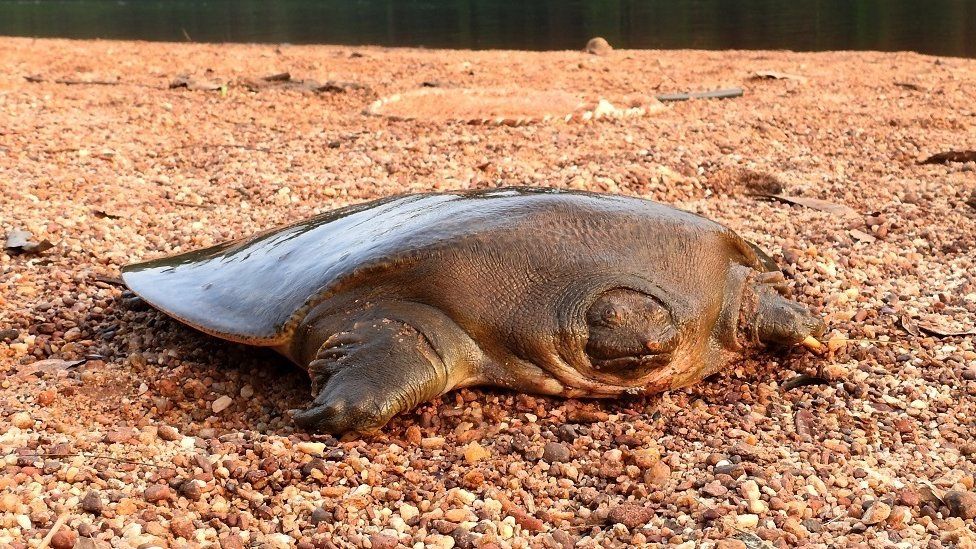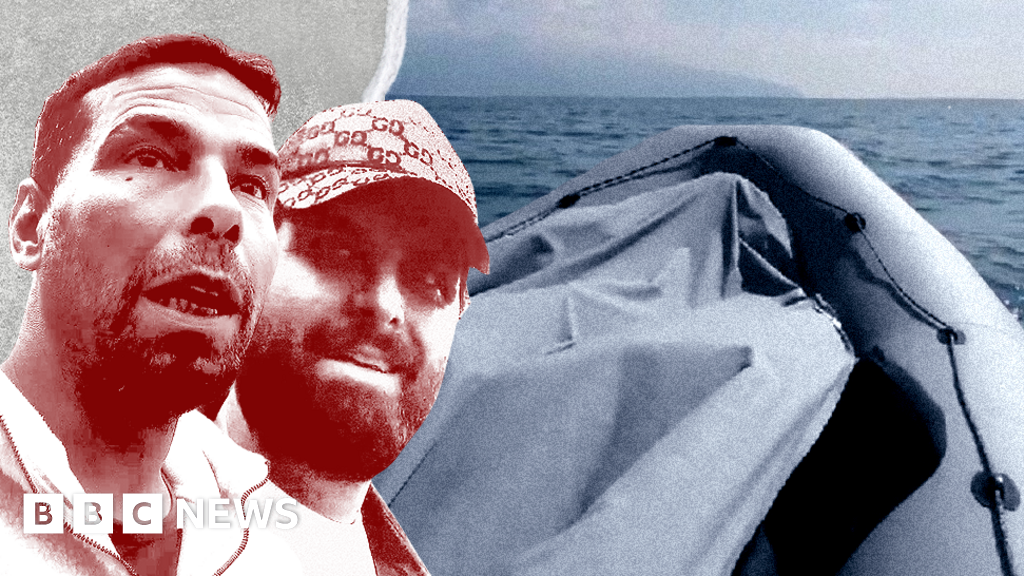ARTICLE AD BOX
 Image source, PA Media
Image source, PA Media
The species is native to the rivers of south and southeast Asia
The first breeding population of an "incredibly rare" turtle has been discovered in India.
A team of conservationists, led by the University of Portsmouth, uncovered the nesting site of the "secretive" Cantor's giant softshell turtle.
The species, which is native to the rivers of south and south-east Asia, is classified as critically endangered.
The elusive turtle was found on the banks of the Chandragiri River in Kerala, southern India.
A University of Portsmouth spokesman said the species was "known for its rarity and secretive nature", adding it had "long been a subject of fascination and concern among conservationists".
Image source, PA Media
Image caption,They are classified as critically endangered
Dr Francoise Cabada-Blanco, from the university's school of biological sciences, said: "For years, the Cantor turtle's existence has barely been a murmur against the backdrop of India's bustling biodiversity, with sightings so scarce that the turtle's very presence seemed like a ghost from the past."
Following several unsuccessful attempts at tracking them down, using conventional ecological survey methods, the research team took a different approach - using local knowledge and historical sightings to piece together the exact location of the nest.
Dr Cabada-Blanco said the team was able to "engage the community really effectively", with locals sharing tales of historical sightings, and even "aiding in the live release of individuals accidentally caught as by-catch".
Image source, PA Media
Image caption,The team used local knowledge to find the nest
The work led to the first documentation of a female nest and the rescue of eggs from flooded nests. Hatchlings were later released into the river.
Cantor's giant softshell turtles live in freshwater, with individuals known to reach more than 1m (3ft) in length and weigh more than 100kg (220lb).
The team is now working to set up a community hatchery and nursery near to the discovery site.
Follow BBC South on Facebook, X, or Instagram. Send your story ideas to south.newsonline@bbc.co.uk or via WhatsApp on 0808 100 2240.
Related Internet Links
The BBC is not responsible for the content of external sites.

 8 months ago
104
8 months ago
104








 English (US)
English (US)